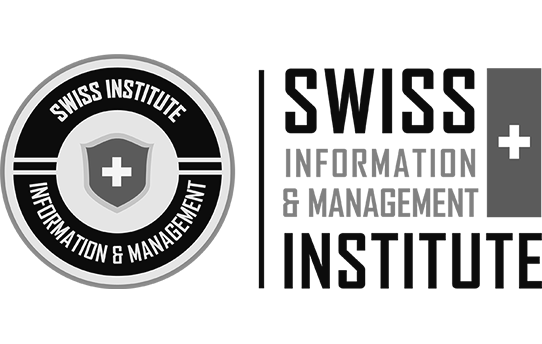Doctorate by PublicationTuition fees

Profesional DoctorateTuition Payment Options
TOP CHOICE





Policies on Tuition and Other Fees
The Policies on Tuition and Other Fees provide clear guidelines on the costs associated with academic programs, including tuition rates, administrative fees, and any additional charges. These policies outline payment schedules, refund procedures, and conditions for fee adjustments. They ensure transparency and help students plan their financial commitments throughout their educational journey.
All programs advertised and enrolled through MI Swiss will not award qualifications from SIMI Swiss but only from partner universities. This model allows SIMI Swiss to freely support tuition fees for students outside Switzerland.
In case SIMI Swiss has a local partner, if students have difficulty making payments, they can contact the local partner for support. However, the local partner only facilitates the payment process; not counted as local partner revenue.
Students are required to comply with the fee terms and conditions in effect at the time of initial registration (subject to annual increases). This agreement remains in force for the standard duration of the course plus a further two years. After this time, if the student has not completed the course for any reason, including interruption, the student will be subject to the updated tuition terms and conditions.
Ultimately, students are responsible for paying their own tuition.
SIMI Swiss and the partner universities reserve the right to disqualify any student, whether new or continuing, who fails to pay tuition and/or other fees or fails to make satisfactory payment arrangements within a certain period of time after their course start date.
In addition, SIMI Swiss and partner universities have the right to prohibit students from participating in graduation ceremonies or receiving certificates of merit if debts related to tuition fees have not been paid.
International undergraduate and postgraduate applicants might be required to pay a deposit to receive their Letter of Acceptance. This deposit is non-refundable.
If an applicant decides to defer their start date or wishes to reapply for a new course at SIMI Swiss, SIMI Swiss is able to retain the full deposit, but this is only applicable for the next available start date. In these instances, the student is required to submit an official document to studentaffairs@simiswiss.ch within 10 working days from receiving the final day of registration email notification for such arrangements to be made.
In the event of a change in circumstances as outlined below, full refunds will be issued to the original payee within 14-30 working days, depending on the payment method used:
- The University does not make an offer after the applicant has paid the deposit.
- The University withdraws the applicant’s offer for reasons other than fraudulent, non-genuine, or negligent application actions by the student or their agent.
- The applicant fails to meet the academic conditions specified in the University’s conditional offer.
- The applicant’s visa application is denied, except in cases where the denial is due to fraudulent, non-genuine, or negligent application actions by the student or their agent.
- The applicant is unable to travel due to extraordinary circumstances, such as a pandemic like COVID-19.
The deposit will NOT be refunded in case:
- The University withdraws the applicant’s offer due to fraudulent, non-genuine, or negligent actions in the application process by the student or their agent.
- The applicant’s visa is refused due to fraudulent, non-genuine, or negligent application actions by the student or agent.
- The applicant deferred the start date to a later date and then decided to withdraw.
- The university deems the application as not belonging to a genuine student.
If the University becomes aware of, or suspects, fraudulent payment activity, it will take appropriate action in accordance with the Anti-Money Laundering Policy. In cases of payment fraud, whether intentional or unintentional, the University reserves the right to reject an application, withdraw a Letter of Acceptance for Studies (LoA), or deregister a student from the course without further recourse. In such instances, the University will adhere to the relevant statutory legislations in effect.
SIMI Swiss recognize that there are legitimate reasons why enrolled students may not be able to complete their programs with benefits to themselves. Accordingly, the institution has a policy for equitable tuition adjustments or refunds in such cases that conform to Zug Canton Policy. Records are maintained on tuition refunds and enrollment cancellations to provide a reference source for management analysis.
The tuition Refund Policies describe the policies used in the settlement of students’ accounts in cases where there are legitimate reasons why the enrolled students may not be able to complete the program with benefit to them.
The application fee is refundable conditionally:
- Paid tuition fees will be 100% refunded if the student has not yet studied and has received a Letter of Acceptance (LoA) from the Institute at least 04 weeks before the program opening date.
- Paid tuition fees will be refunded 50% if students have not yet studied and have received a Letter of Acceptance (LoA) from the Institute at least 02 weeks before the program opening date.
- Paid Tuition fees will NOT be refunded when the student drops out / discontinue after 12 week from the start program date or fails to get the approval of Withdrawal Request from the Institute.
Postgraduate research students may need to pay bench fees for equipment and/or to extend their research period. These estimated fees will be detailed on the invoice separately from the tuition fees. Payment of these fees is subject to the terms stated on the invoice.
Students enrolling in courses for a repeat period are required to pay tuition fees proportional to the credit hours being retaken.
Students enrolled in deferred repeats or those repeating courses without attendance will be subject to a new fee.
SIMI Swiss recognizes that there are legitimate reasons why enrolled students may not be able to complete their programs with benefits to themselves. Accordingly, the institution has a policy for equitable tuition adjustments or refunds in such cases that conform to Zug Canton Policy. Records are maintained on tuition refunds and enrollment cancellations to provide a reference source for management analysis.
The tuition Refund Policies describe the policies used in the settlement of students’ accounts in cases where there are legitimate reasons why the enrolled students may not be able to complete the program with benefit to them.
The application fee is refundable conditionally:
- Paid tuition fees will be 100% refunded if the student has not yet studied and has received a Letter of Acceptance (LoA) from the Institute at least 04 weeks before the program opening date.
- Paid tuition fees will be refunded 50% if students have not yet studied and have received a Letter of Acceptance (LoA) from the Institute at least 02 weeks before the program opening date.
- Paid Tuition fees will NOT be refunded when the student drops out / discontinue after 12 week from the start program date or fails to get the approval of Withdrawal Request from the Institute.
Postgraduate Research students in their extension year have two fee options: a full year extension fee for 12 months of study or a half-year extension fee for 06 months. If a student finishes early within a six-month period, there won’t be any discount on the tuition fee. However, if a student pays for a full year but completes within 06 months, their fee will be adjusted to the half-year rate.
For students submitting their thesis early within the normal enrollment period, there will be no tuition fee reduction.
Students have the option to pause their studies with the approval of their School’s Head. When students change their course within the same study mode or take a break from their program, the University will adjust their tuition fees according to the relevant liability periods and the annual fee charged. However, tuition fees remain unchanged if students temporarily withdraw from one or several modules.
For postgraduate students transferring from full-time to part-time study, tuition will be recalculated pro-rata based on the tuition payment deadline. The total cost of completing the course as a part-time student will not exceed the cost of an equivalent full-time program, provided the student completes the course without interruption in study or must retake credits.
For all other students, the Institute will determine the portion of tuition fees relevant to the student or their sponsoring entity for refund purposes at the time of transfer or interruption of their studies.
If a student has interrupted his or her studies and owes all or part of the tuition and has paid more than the adjusted reduced fee, the excess amount will be carried forward and applied as a deduction to their tuition for the next registration period. Students have the right to request a refund of this credit balance.
If the amount paid is less than the recalculated tuition amount at the time of interruption, the student or their sponsoring entity must pay the outstanding balance immediately. Failure to repay this debt may result in the student being barred from the University and prohibited from continuing with their program.
Upon returning from an interruption, students normally will be charged a pro-rata fee that corresponds to the remaining credits needed to complete that academic year. Students enrolled in Learning at Work courses who return to study will be charged a fee calculated as a percentage of the full amount, calculated based on the fee structure from the year before they paused their studies.
For taught undergraduate and postgraduate students returning only to work on a thesis, fees will be adjusted for any inflation-related increases in the academic year in which they return.
For students whose postgraduate studies are interrupted for 12 months, when returning to study, they will be required to pay the tuition fees for the academic year in which they will return, minus the tuition fees paid for the previous period of study when interrupted.
If the interruption lasts less than 12 months, upon resumption, the standard tuition fee for the entire year might be charged. However, these students may be granted a period at the end of their studies during which no tuition fee is due, equivalent to the remaining duration of the interruption.

